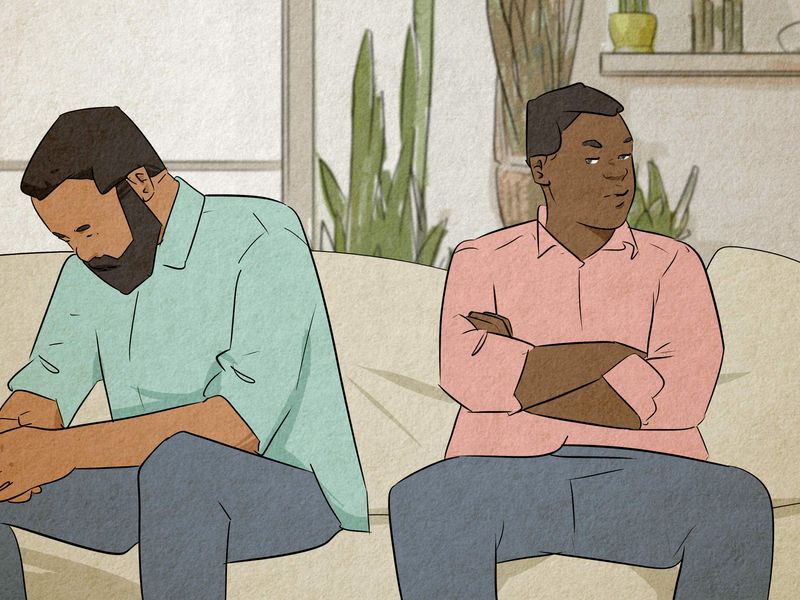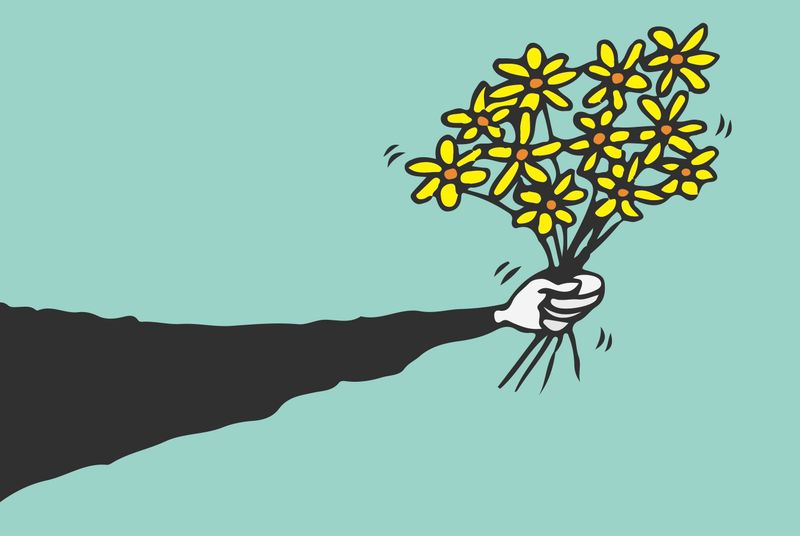Navigating social dynamics can be tricky, and it’s easy to unintentionally develop habits that push people away. If you often find yourself wondering why social invitations are few and far between, it might be time to reflect on these everyday behaviors.
This list explores 19 reasons why people might be keeping their distance and offers practical tips to help you reconnect and strengthen your social bonds.
1. You dominate conversations
Are you always leading the conversation? While sharing your thoughts is important, dominating discussions can leave others feeling unheard. Balance your time speaking with active listening, showing genuine interest in others’ stories. Practice asking open-ended questions, encouraging friends to share their perspectives. Shift focus to inclusivity, ensuring everyone has a voice.
When you allow others to speak, conversations become more dynamic and engaging. You’ll find relationships deepening as friends appreciate your attentiveness. Remember, the most interesting people are often the most interested in others. By fostering a space where everyone feels valued, you’ll create more meaningful connections.
2. You rarely ask questions about others
Do you often talk about yourself without inquiring about others? Conversations thrive on mutual exchange. By neglecting to ask questions, you may appear self-centered, risking alienation. Cultivating curiosity about friends’ lives strengthens bonds. Try asking questions that show genuine interest, like, “How was your weekend?” or “What’s new with your project?”
Listening actively and responding thoughtfully will demonstrate that you care. This approach not only enriches conversations but also builds trust and rapport. As you make this shift, you’ll notice friends engaging more, eager to share their experiences, knowing their stories are valued.
3. You always turn invites down
Consistently declining invitations can signal disinterest, leading friends to stop asking. While it’s okay to prioritize personal time, balance is key. Examine why you often say no. Is it burnout, social anxiety, or something else? Communicate with friends about your reasons to decline, fostering understanding. Consider accepting some invites, even if outside your comfort zone.
Attending events occasionally strengthens friendships, showing you’re invested in your social circle. This doesn’t mean attending every gathering; instead, find a healthy balance that respects your limits while keeping connections alive. Friends value effort and engagement.
4. You constantly complain
Is your go-to conversation starter a complaint? Constant negativity can drain social interactions, leaving friends hesitant to hang out. While it’s normal to vent occasionally, focusing solely on the negative can overshadow positive experiences. Aim for a balanced perspective, acknowledging challenges while celebrating successes.
Shift your narrative by sharing gratitude or positive anecdotes. By consciously steering conversations towards uplifting topics, you’ll create a more enjoyable atmosphere. Friends will appreciate your positivity, finding interactions with you more refreshing and less burdensome. Remember, positivity is infectious—spread it liberally!
5. You only show up when you need something
Are your friendships transactional? If you only reach out when in need, friends may feel used. Genuine relationships are based on mutual support and shared experiences. Balance asking for help with offering it. Regularly check in with friends, showing interest in their lives apart from your needs.
This reciprocity strengthens bonds, reassuring friends that you value them beyond what they can provide. By investing in relationships for their own sake, you’ll cultivate more meaningful connections. Friends will appreciate your sincerity, knowing your presence isn’t conditional on favors.
6. You’re glued to your phone
Is your phone a constant companion, even during social gatherings? Being glued to your device can send a message that those present aren’t your priority. While technology keeps us connected, it shouldn’t overshadow in-person interactions. Make a conscious effort to put your phone away, focusing on the people around you.
Engage in face-to-face conversations, making eye contact and actively participating. By valuing real-life connections, you’ll foster a more inclusive and engaging environment. Friends will appreciate your presence, feeling valued and respected.
7. You interrupt—more than you think
Do you often find yourself speaking over others? Interruptions can disrupt the flow of conversation, leaving friends feeling dismissed. While excitement can lead to interjections, practice patience, allowing others to finish their thoughts. Wait for natural pauses before contributing. By listening fully, you’ll gain a deeper understanding and contribute more meaningfully.
This respectful approach fosters a more inclusive atmosphere, enhancing group dynamics. Friends will appreciate your consideration, knowing their voices are heard. The art of conversation lies in its flow—let it unfold naturally.
8. You’re too competitive over little things
Do you turn every friendly competition into a battlefield? Excessive competitiveness can make lighthearted activities feel tense. Remember, social gatherings aim for enjoyment and camaraderie, not rivalry. Keep competitiveness in check by focusing on fun rather than winning. Celebrate others’ successes as much as your own.
By emphasizing collective enjoyment over personal victory, you’ll create a more relaxed atmosphere. Friends will appreciate your sportsmanship, finding interactions more enjoyable and stress-free. In social settings, it’s the shared laughter that truly matters.
9. You bring down the vibe
Ever notice friends growing quiet when you arrive? Sometimes, our energy doesn’t match the room’s. Negative vibes can dampen others’ spirits, making them hesitant to hang out. Reflect on how your mood affects social settings. Aim to harmonize with the group’s energy, bringing positivity and enthusiasm.
By consciously adjusting your demeanor, you’ll contribute to a more enjoyable atmosphere. Friends will feel more comfortable and willing to engage, knowing you add value to their gatherings. Positivity is contagious—let it be your calling card.
10. You bail last-minute too often
Do you frequently cancel plans with little notice? Last-minute bailing can frustrate friends, making them reluctant to invite you. While life is unpredictable, aim for consistency and reliability. If you must cancel, give ample notice and offer to reschedule. Demonstrating respect for others’ time shows you value their company.
By committing to plans and following through, you’ll reinforce trust and reliability. Friends will appreciate your dependability, feeling reassured in inviting you. Consistency in social commitments strengthens relationships.
11. You’re harsh with your humor
Is your humor often at others’ expense? While teasing can be fun, harsh jokes may hurt feelings, pushing people away. Reflect on your humor style, ensuring it uplifts rather than diminishes. Practice empathetic humor, considering how others might perceive your jokes.
Aim for inclusivity, creating a welcoming environment where laughter is shared, not divisive. By adjusting your humor, you’ll foster a more positive and supportive atmosphere. Friends will appreciate your sensitivity, feeling comfortable and respected. Humor should build bridges, not walls.
12. You make everything about you
Is every conversation a platform for your stories? Making everything about yourself can leave friends feeling sidelined. While sharing is key to bonding, balance is crucial. Practice active listening, giving others the space to share their experiences.
Acknowledge and engage with their stories, showing genuine interest. By shifting focus, you’ll create a more dynamic and reciprocal conversation. Friends will appreciate your attentiveness, finding interactions more fulfilling and balanced. Prioritize mutual engagement, making room for diverse perspectives.
13. You hold grudges without expressing them
Do unspoken grievances linger in your friendships? Holding grudges without addressing them can create tension, affecting interactions. Communication is key to resolving misunderstandings. Rather than simmering in silence, express your feelings calmly and constructively. Approach conflicts with a willingness to understand and reconcile.
By addressing issues openly, you’ll clear the air, fostering healthier relationships. Friends will appreciate your transparency, feeling secure in the knowledge that conflicts won’t simmer beneath the surface. Open dialogue strengthens friendships, paving the way for growth.
14. You never apologize or acknowledge your part
Are apologies rare in your interactions? Failing to acknowledge mistakes can damage trust and create distance. Apologizing when necessary demonstrates maturity and respect. Reflect on your actions, considering how they may affect others. If you’re in the wrong, own up to it sincerely.
A heartfelt apology can mend fences and strengthen bonds. By taking responsibility, you’ll show friends their feelings matter. Trust is built on accountability—nurture it through genuine apologies. Friends will appreciate your honesty, knowing you’re committed to growth and understanding.
15. You overshare too soon
Do you reveal too much, too soon? While openness fosters intimacy, oversharing can overwhelm new acquaintances. Gauge the depth of your relationship before divulging personal information. Gradually build trust, sharing meaningful details as bonds deepen. By pacing your revelations, you’ll avoid making others uncomfortable.
Friends will appreciate your discretion, feeling their boundaries are respected. Meaningful connections develop over time—let them unfold naturally. Balance transparency with respect for personal space, nurturing a comfortable and trusting environment.
16. You’re judgmental about choices that aren’t yours
Do you often critique others’ choices? Judging friends’ decisions can create distance, making them hesitant to share. Embrace diversity, acknowledging that everyone has different paths. Practice empathy, considering the factors behind others’ choices.
By valuing varied perspectives, you’ll foster a more inclusive and accepting environment. Friends will appreciate your open-mindedness, feeling free to be themselves without fear of judgment. Relationships thrive on acceptance and understanding—cultivate them by celebrating differences.
17. You don’t follow up after hangouts
Do you let connections fade after hanging out? Following up after gatherings shows friends you value their company. A simple message expressing gratitude or recalling a fun moment can solidify bonds. Continuity in communication reassures friends of your genuine interest in maintaining the friendship.
By reaching out, you’ll create a sense of appreciation and engagement. Friends will feel cherished, knowing you prioritize the relationship beyond the immediate interaction. Consistent follow-up keeps connections alive, nurturing lasting friendships.
18. You never initiate plans
Do you always wait for others to suggest meet-ups? Not initiating plans can suggest disinterest, leaving friends to carry the social burden. Take the initiative by proposing gatherings or activities. Show enthusiasm and commitment by planning events that cater to shared interests.
By demonstrating proactive engagement, you’ll signal your investment in the friendship. Friends will appreciate your effort, knowing you’re eager to spend time together. Mutual interest strengthens bonds, fostering a more balanced and reciprocal relationship.
19. You ignore social cues or boundaries
Do you often miss subtle hints in social settings? Ignoring social cues or boundaries can lead to misunderstandings, making friends uneasy. Cultivate awareness by observing body language, tone, and context. Respect personal space and emotional boundaries, ensuring interactions are comfortable.
By tuning in to cues, you’ll navigate social landscapes more adeptly, fostering smoother interactions. Friends will appreciate your sensitivity, feeling understood and respected. Awareness and respect for boundaries are keystones of successful relationships.




















